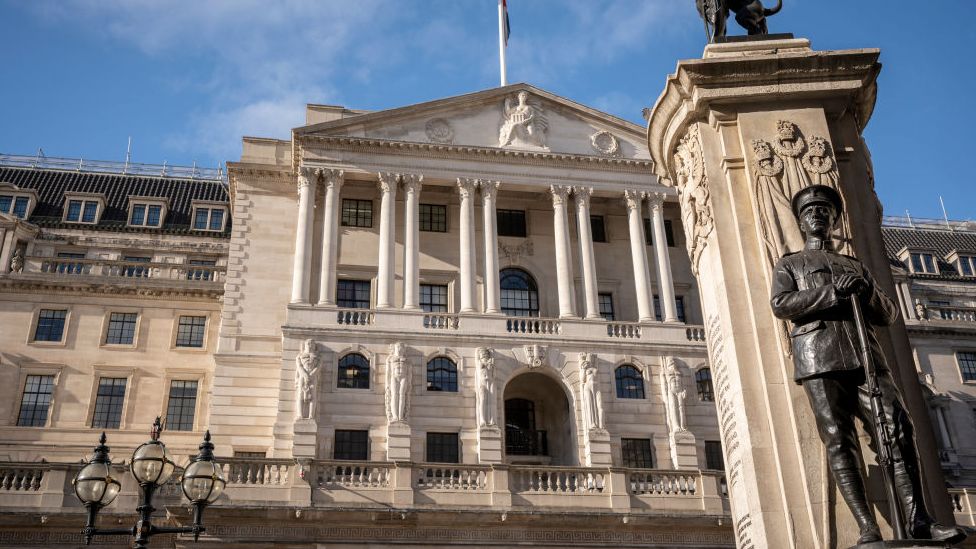
Mortgage payments will rise by at least £500 a month for nearly one million households by the end of 2026, according to the Bank of England.
Households and firms have been under pressure as interest rates have risen in a bid to lower high inflation.
In a report, the Bank said mortgage holders “may struggle with repayments” on loans.
But it said lenders are strong enough to withstand a rise in customers defaulting on repayments.
The Bank has raised interest rates from 0.1% in December 2021 to 5% to curb rising prices.
Expectations that borrowing costs might rise even further has pushed up mortgage rates. This week, the average rate on a two-year fixed deal hit a 15 year high of 6.66%,
The Bank of England said in its twice-yearly Financial Stability Report that as fixed-rate mortgage deals expire and people renew their loans, mortgage repayments will go up.
More than two million households will pay between £200 and £499 from the end of this year and the end of 2026, it warned.
A further one million mortgage holders will see their monthly payments rise by at least £500 over the next two and a half years.
Most mortgages taken out in recent years have been at a fixed rate of two or five years which means there is a lag in terms of when recent rate rises will hit households.
About 4.5 million homes have had to pay more in mortgage repayment since late 2021, and higher rates will hit the vast majority of the rest by the end of 2026.
The Bank said: “UK banks are in a strong position to support customers who are facing payment difficulties. This should mean lower defaults than in previous periods in which borrowers have been under pressure.”
It said that, so far, the UK has been “resilient” to rapidly rising interest rates.
The Bank of England’s report also showed the result of a “stress test” on the UK’s eight biggest banks and building societies to see if they could withstand catastrophic economic conditions.
These include house prices falling by 31%, the unemployment rate increasing to 8.5% and inflation rising to 17%.
The banks and building societies that have been tested include: Barclays, Lloyds, HSBC, NatWest, Santander UK, Standard Chartered, Nationwide Building Society and Virgin Money.
What happens if I miss a mortgage payment?
- A shortfall equivalent to two or more months’ repayments means you are officially in arrears
- Your lender must then treat you fairly by considering any requests about changing how you pay, perhaps with lower repayments for a short period
- Any arrangement you come to will be reflected on your credit file – affecting your ability to borrow money in the future








